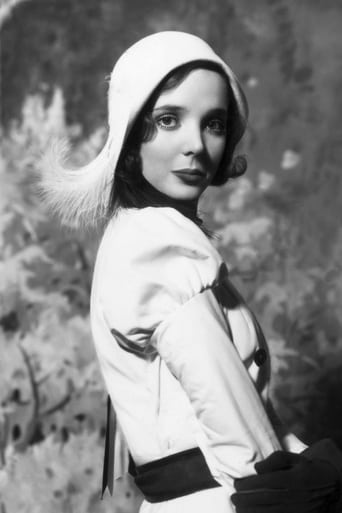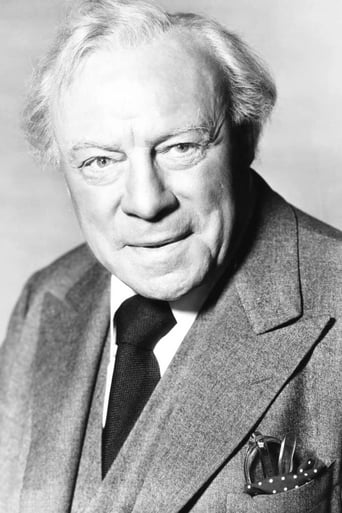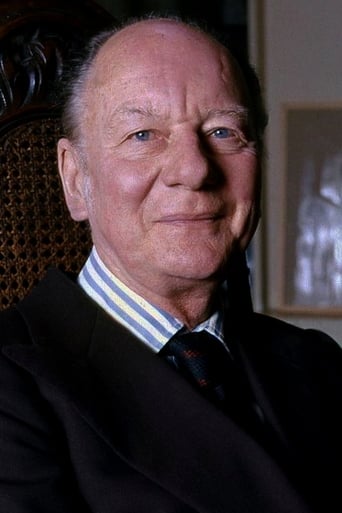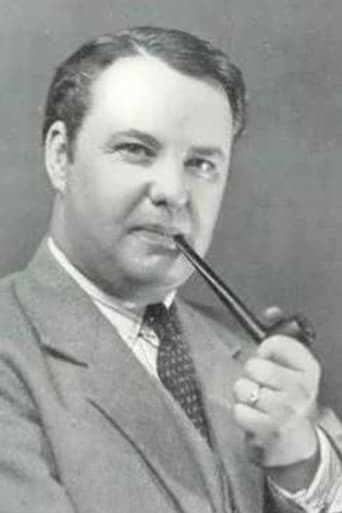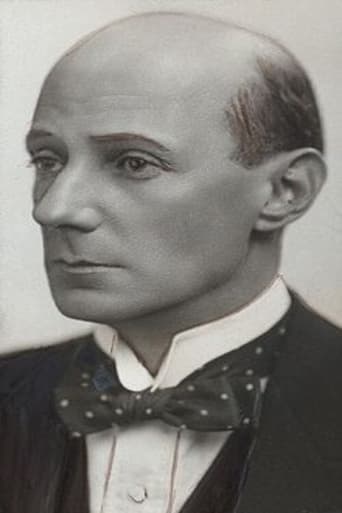Stevecorp
Don't listen to the negative reviews
Freaktana
A Major Disappointment
Bea Swanson
This film is so real. It treats its characters with so much care and sensitivity.
Paynbob
It’s fine. It's literally the definition of a fine movie. You’ve seen it before, you know every beat and outcome before the characters even do. Only question is how much escapism you’re looking for.
mark.waltz
They call em' the Dinky Doo's, and not as in Jimmy Durante's Inka Dinka Doo. They're a British vaudeville team traveling through the boon-docks and befriend a group of lonely people, including shy Mary Glynne, suave John Gielgud and aging Cecil Kellaway. While the first part of the story focuses mainly on Ms. Glynne (whose car has been mistaken for another one), the second half turns attention to the singing and dancing Jessie Matthews, England's answer to Eleanor Powell and equally adept in comedy and romance. Fans of the older Gielgud will marvel at seeing him much younger (and with hair!) and he is more than adequate in a romantic role, not at all pompous or uppity. It is thanks to Ms. Glynne that the troop's name changes to "The Good Companions" and focuses on the desire to get Ms. Matthews discovered by a major producer in London.While it is ironic that the song Ms. Matthews sings for the producer sounds very much like "If I Could Be With You", a standard heard in several Warner Brothers films of the same year, it is even more of a coincidence that the producer has an ear for "new" songs which he's heard before. There's a funny montage of "The Good Companions" touring and performing the same act to dwindling audiences because of the summer heat. While some Americans might be reluctant to watch because of a false sense that they'll understand the British humor, it is actually quite subtle and gives us Yanks an understanding of the British culture of the 1930's beyond what little material has been available to us.
Spondonman
I always preferred this film to the book – although Priestley was an accessible and clever writer his sub-Dickens style and standard left wing leanings (ie support of state capitalism and not socialism) put me off a little. And of course on a much more important if shallower level to me the 25 year old Jessie Matthews was the main thing in here!Four separate people in provincial Britain are on the tramp to somewhere after leaving their homes, jobs etc to search for life and adventure. They all converge at Rawsley in the Midlands on a jolly pierrot troupe on its last legs called the Dinky Doos, join them and eventually turn their fortunes around as The Good Companions … after it starts raining. There's an endless great British cast, most notably simple Jess Oakroyd from Bruddersford (surely Bradford/Huddersfield?) who was played by avuncular Edmund Gwenn with an OTT Yorkshire accent and talented Inigo Jollifant by angular John Geilgud with an OTT Cambridge accent. The rising star of the troupe Susie Dean was played by lovely Jessie Matthews who had two spellbinding songs, Three Wishes sung with Geilgud and a magically tear-struck Let Me Give My Happiness To You – the money shots are her close ups during this! There was a fine orchestral accompaniment throughout and with only occasionally hokey lapses the production was superb. The solitary message is plain: working together to overcome adversity for a common purpose - even though the ending is altered from the book the various outcomes are the same.Altogether a memorable film for the non-serious looking for innocuous entertainment from another world, the serious should stick to the book as Priestley's works are Art. Absolutely!
ianlouisiana
JB Priestley was arguably the finest popular novelist of the first half of the 20th century.Deeply affected by his experiences in the trenches during the 1914 - 18 war,he wrote with compassion about recognisable human beings in situations that struck a chord with the British reading public right up to his last great work "Lost Empires". After the war he went up to Trinity Hall,Cambridge,in whose library there is First Edition of "The Good Companions" accompanied by a letter in which he expresses bewilderment at the success of a work he felt was no better nor worse than his earlier output. Whatever the author felt,it was plain that commercially the book was hugely popular,going into dozens of editions and still in print 75 years later. With the passing of time the appeal of the lost world of concert parties ,runabouts ,charabancs cloche hats,Corner Houses and nicely mannered young men who could play the banjo but didn't has increased. The romance of the road has long gone,replaced by Motorway Madness,but the flickering black and white images of artillery - wheeled lorries grinding along the Great North Road evoke some sort of race - memory even amongst today's motorists. Watching the 1933 version of "The Good Companions" is a joyful experience.The innocence of it all,the joie de vivre,the excitement is a salutary lesson to the present cold - hearted calculating and faux wordly - wise generation of entertainers. What a great star Jessie Matthews was!It's pointless bemoaning the lack of her like today;simply put she was a product of her time the way Martine McCutcheon, say,is of hers. Edmund Gwenn and,perhaps surprisingly,John Geilgud,grab your attention from the start and hold onto it throughout the film. But principally this is an ensemble piece with every one of the Dinky Doos making a telling contribution. "The Good Companions" sends us a message from the depression - hit Britain of the early 1930s ,one that at least one mega - Corporation have taken on board....."!Just Do it".
bensonj
Jessie Matthews made a number of very charming British musicals during the thirties. (One of the better ones, FIRST A GIRL, an early version of VICTOR/VICTORIA, has just been released on video.) But THE GOOD COMPANIONS is not a musical, although it has musical sequences, nor is it really a Matthews vehicle, though she's prominently featured and outstanding.It's a marvellous adaptation of J. B. Priestly's story of three individuals who are prodded by events into taking to the open road and who subsequently meet up with each other and a small troupe of entertainers called the Dinky Doos. The introductory sequence for each of the characters is delightful and meticulously detailed. Perhaps the best is Edmund Gwenn's; after a lifetime with the company he is sacked and decides to leave his shrewish wife. Gwenn has a wonderful great thick Midlands accent here; when checking a car that won't start, he finds the problem to be "mooky ploogs" (mucky spark plugs). This short sequence is so detailed, with characters so fully drawn (including a young Jack Hawkins) it could have made up a whole film. John Gielgud (in his first film) is a master at a threadbare school run by a tight-lipped puritanical battle-ax, who catches him mimicking her husband. Mary Glynne has spent her life nursing her invalid father; when he dies she decides to spend her small inheritance on the road before accepting a life of drudgery. Each of the three have amusing adventures on the road (some delightful plot construction here) before all winding up in the same tea room with the stranded Dinky Doos. They all decide, over a shared evening meal, to join together and form a new group called "The Good Companions." As they travel around England, Jessie Matthews (one of the Doos) gets larger and larger billing. (At first, one thinks she'll be a minor player in this early film, since she's not "featured" in the early group scenes, but it seems to have been a creative decision to have the most important character gradually insinuate herself into the film.) Finally, Gielgud gets music publisher-impresario Finlay Currie ("Me, in person, not a moving picture") to see the show, and, after further complications, Matthews and Gielgud are headed for the big time.In so many of her films, Matthews plays an ingenue waiting to be discovered, and never for a moment does one feel that this is a writer's convention as is so often the case (think Joan Crawford's "dancing" being discovered in DANCING LADY). Jessie Matthews' ability and magnetism are so evident there's just no question that when the right person finally sees her perform her star quality will be instantly recognized. This was never more true than in THE GOOD COMPANIONS, where Matthews' vitality, youth, sex appeal and talent absolutely light up the film! Like every aspect of this film, the romance between Gielgud and Matthews is remarkable to behold.She's so strong willed, so incandescent, Gielgud seems almost afraid to burn his fingers, yet dares to hold his own. As with only the finest fairy tale fantasies, this is absolutely grounded in the real world, filled with sharp, rich characterizations and the details of its time and place. The episodic plot is sentimental yet honest, romantic yet realistic. The performances, from major to minor players, are uniformly excellent. But it's Priestly's story and Victor Saville's superb direction that make this a special experience. The film has a miraculous quality about it, a mysterious perfection that's like no other film I can think of. Of the thousands of films I've seen in the last fifty years this one of my very favorites. I've seen it twice theatrically and am eagerly looking forward to the video release so I can watch it again and again.
